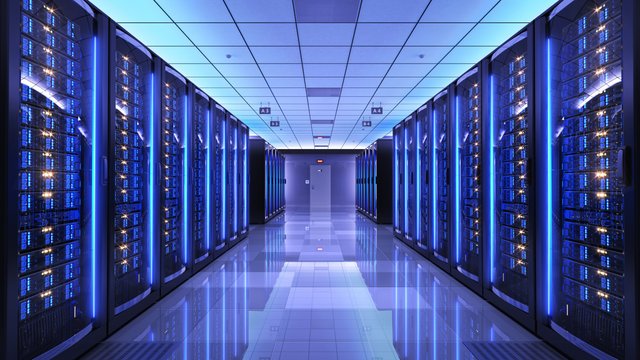6 Things You Might Not Know About High-Performance Computing

Have you ever wondered how massive tasks like predicting the weather or designing advanced cars get done so quickly?
The answer often lies in high-performance computing (HPC).
It’s not just about faster computers—it’s a world of incredible possibilities that touches your life more than you realize. HPC helps in solving complex problems that regular computers can’t handle efficiently.
Curious about how HPC works or its real-world uses?
In this article, you’ll discover six fascinating things about HPC that will surprise you. From its ability to process data at unimaginable speeds to its role in shaping the future, let’s explore what makes high-performance computing so extraordinary.
By the end, you’ll see HPC in a whole new light.
1. HPC Processes Data at Mind-Blowing Speeds
High-performance computing isn’t just fast—it’s unbelievably fast. While your everyday computer might handle tasks in seconds or minutes, high performance computing HPC systems complete the same tasks in milliseconds. They use thousands of processors working together to crunch numbers and analyze data simultaneously.
For example,
HPC is used in weather forecasting to analyze massive amounts of atmospheric data. A single forecast involves billions of calculations, and only HPC systems can process this data quickly enough to predict weather patterns accurately. It’s why we can now prepare for natural disasters well in advance. HPC is a speed powerhouse, delivering results in real-time.
2. It Powers Innovations Across Industries
HPC doesn’t just stick to one field; it’s a key driver of progress in industries like healthcare, automotive, and space exploration. Here are three areas where HPC shines:
Healthcare Breakthroughs: HPC accelerates drug discovery and medical research. It was instrumental in the rapid development of COVID-19 vaccines by processing massive biological datasets.
Designing Safer Cars: In the automotive industry, HPC simulates crash tests digitally, saving time, resources, and lives.
Space Exploration: From analyzing Mars rover data to mapping the universe, HPC helps scientists explore the unknown.
These examples show how HPC changes the game, solving challenges that seemed impossible before.
According to one of the reports,
The global high-performance computing (HPC) market size was valued at USD 48,518.9 million in 2022 and is projected to grow to USD 52,647.8 million in 2023.
3. HPC is Surprisingly Cost-Effective
You might think such powerful technology comes with a hefty price tag, but HPC is more accessible than ever. Cloud-based HPC solutions allow companies to rent computing power instead of buying expensive infrastructure. This reduces upfront costs and makes HPC available to small and medium-sized businesses.
Here are five reasons why HPC is cost-effective:
Pay-As-You-Go: Businesses pay only for the computing power they use.
No Need for Hardware Maintenance: Cloud providers handle the upkeep.
Energy Efficiency: HPC systems are optimized to consume less energy per calculation.
Faster Time-to-Market: Companies can develop products faster, saving money in the long run.
Scalability: Businesses can scale their computing needs up or down as required.
HPC isn’t just for big corporations anymore—it’s a smart investment for businesses of all sizes.
4. HPC Enhances Artificial Intelligence and Machine Learning
Artificial intelligence (AI) and machine learning (ML) owe much of their progress to HPC. Let’s break it down into three key contributions:
Training AI Models Faster: AI models require vast datasets for training. HPC speeds up the process, making it possible to achieve results in hours instead of weeks.
According to one of the reports,
The global Artificial Intelligence (AI) market is expected to expand from USD 214.6 billion in 2024 to USD 1,339.1 billion by 2030.
Improving Accuracy: With more computing power, AI systems can analyze larger datasets, resulting in better accuracy and reliability.
Advancing Autonomous Technology: From self-driving cars to AI-powered assistants, HPC makes these technologies smarter and more efficient.
In short, HPC acts as the backbone of AI and ML, ensuring these technologies evolve and impact our lives positively.
5. HPC is Essential for Scientific Research
Scientific discoveries today rely heavily on high-performance computing HPC. Without it, advancements in fields like climate science, astrophysics, and genetics would take decades instead of years.
Here are five ways HPC supports research:
Climate Modeling: HPC helps scientists predict climate changes and study environmental impacts.
Genome Sequencing: It accelerates genetic research, enabling breakthroughs in personalized medicine.
Astrophysical Simulations: HPC models the behavior of galaxies, stars, and black holes.
Particle Physics: Experiments like those at CERN depend on HPC to analyze particle collision data.
Materials Science: HPC allows researchers to design advanced materials for industries like construction and electronics.
HPC empowers researchers to answer questions that were once beyond human reach.
6. HPC is Paving the Way for a Smarter Future
High-performance computing is not just about solving today’s problems; it’s about building a better tomorrow. HPC systems are at the heart of emerging technologies like quantum computing and real-time global analytics.
For instance, imagine a future where global supply chains are optimized in real-time or where medical emergencies are predicted before they happen. HPC makes these scenarios possible by processing complex data instantly. It’s a technology that evolves with time, ensuring it remains relevant for decades to come.
As HPC becomes more advanced, it will unlock innovations we can’t even imagine yet, shaping the future of industries and everyday life.
Conclusion
High-performance computing HPC is a technological marvel that powers everything from scientific breakthroughs to everyday conveniences. It processes data at incredible speeds, drives innovation across industries, supports AI and ML, and paves the way for groundbreaking research.
HPC is no longer reserved for large corporations—it’s becoming more accessible, cost-effective, and essential for businesses and individuals alike. As we look to the future, the possibilities with HPC are endless, transforming how we live, work, and solve complex problems.
Now that you know these six fascinating facts about HPC, it’s clear that its role in shaping the world is truly unmatched.
Read more: Why Servers Matter for Complex Data-Intensive Applications